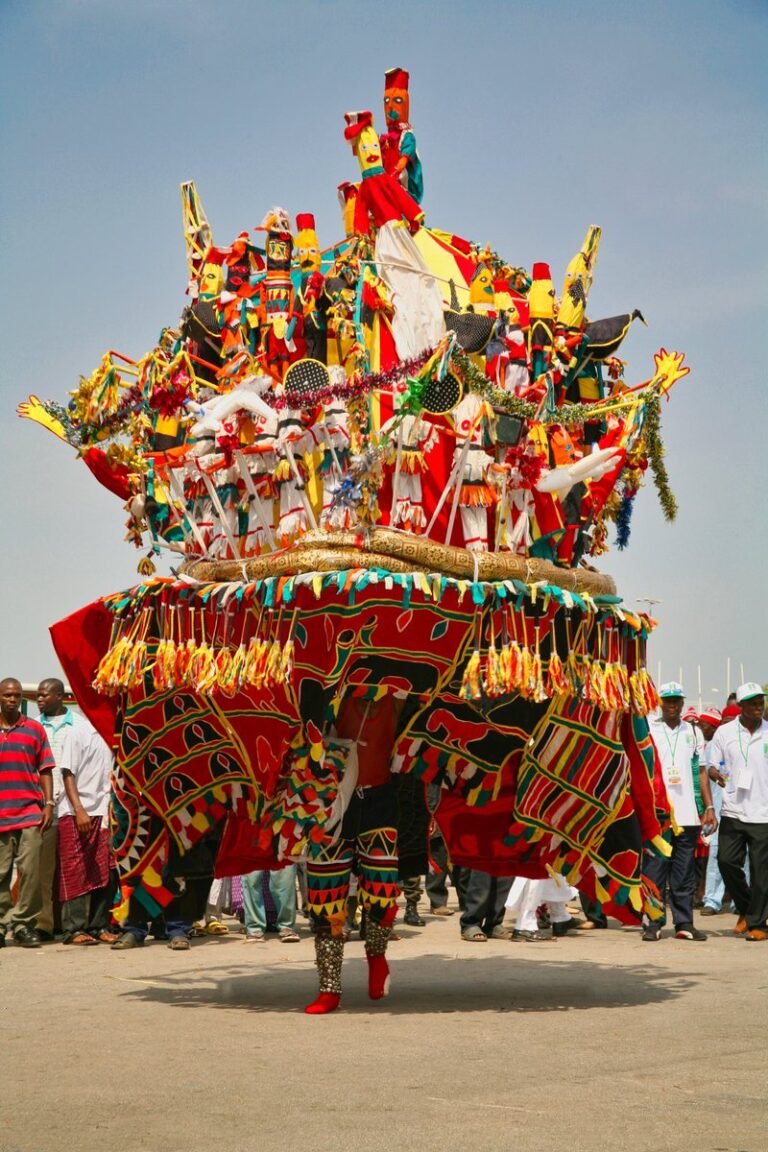Traditional Anambra State Games and Sports: A Cultural Heritage
Anambra State, known for its industrious people and vibrant festivals, Anambra stands out as a beacon of Igbo heritage. Among the many aspects of its cultural identity, traditional games and sports hold a special place. These activities are not merely pastimes but are deeply intertwined with the social fabric and historical narratives of the communities.
Traditional games and sports in Anambra State serve as vehicles for cultural preservation, intergenerational bonding, and social cohesion. They embody the values, skills, and collective memories of the people. This article aims to explore and celebrate the traditional games and sports unique to Anambra State, delving into their historical context, cultural significance, and contemporary relevance.
Historical Context
The history of traditional games and sports in Anambra State is as old as the communities themselves. These activities have been integral to the social and cultural life of the Igbo people. Historically, they provided not only entertainment but also a means of physical training, socialization, and conflict resolution.
Evolution Over Time
Traditional games in Anambra have evolved significantly over the centuries. Initially, they were simple and closely tied to daily activities and survival skills. For example, wrestling (Mgba) was a way for young men to demonstrate strength and agility, which were essential for hunting and defense. As societies became more structured, these games evolved into organized sports with specific rules and cultural ceremonies.
The introduction of colonial rule and Western education in the late 19th and early 20th centuries brought significant changes. While some traditional games declined due to the influence of Western sports, others adapted and incorporated new elements, ensuring their survival and continued relevance.
Significant Historical Events and Figures
Several historical events and figures have shaped the traditional sports landscape in Anambra State. Notable among them is the annual Ofala Festival, during which traditional games are prominently featured. The festival, which celebrates the Igwe (king) of the town, includes various traditional sports competitions, showcasing the community’s physical prowess and cultural heritage.
Prominent figures like the late Igbo leader, Chukwuemeka Odumegwu Ojukwu, have also played roles in promoting and preserving these cultural practices. His efforts in fostering Igbo identity and pride included the encouragement of traditional sports as a means of cultural expression.
Popular Traditional Games and Sports
Anambra State boasts a variety of traditional games and sports, each with its unique rules, cultural significance, and social impact. Here, we will explore some of the most popular ones.
Nkwu Aria (Palm Fruit Wrestling)
Nkwu Aria, or Palm Fruit Wrestling, is a unique and culturally significant sport in Anambra State. This game involves participants wrestling while trying to pick palm fruits from the ground, combining elements of strength, strategy, and agility.
Rules and Gameplay
The game typically involves two competitors who face off in an arena. Palm fruits are scattered on the ground, and the objective is to pick up as many fruits as possible while wrestling the opponent. The game requires not only physical strength but also quick reflexes and strategic thinking to outmaneuver the opponent.
Cultural Significance
Palm Fruit Wrestling is more than just a sport; it is a celebration of agility and resourcefulness, traits highly valued in Igbo culture. The game is often played during festivals and ceremonies, serving as a form of entertainment and a means to uphold traditional values.
Ayo (Mancala)
Ayo, also known as Mancala, is a traditional board game that has been played for centuries across many African cultures, including the Igbo of Anambra State. It is a strategic game that involves moving seeds or stones around a board with several pits.
Rules and Gameplay
The Ayo board typically has 12 pits, with each player controlling six pits. The game begins with each pit containing an equal number of seeds. Players take turns picking seeds from one of their pits and distributing them in a clockwise direction. The objective is to capture more seeds than the opponent by landing the last seed in a pit with a specific number of seeds.
Strategic Aspects and Social Role
Ayo is a game of strategy and foresight, requiring players to think several moves ahead. It is often played in social settings, fostering interactions and bonding among participants. The game is also used to teach mathematical concepts and strategic thinking to children.
Mgba (Traditional Wrestling)
Mgba, or Traditional Wrestling, is one of the most popular and culturally significant sports in Anambra State. Wrestling matches are a common feature of festivals and community gatherings, serving as a showcase of physical strength and skill.
Techniques and Training
Traditional wrestling in Anambra involves a combination of grappling techniques, throws, and holds. Wrestlers undergo rigorous training to build strength, agility, and endurance. Training often begins at a young age, with older, experienced wrestlers mentoring younger participants.
Cultural Importance
Wrestling holds a special place in Igbo culture, symbolizing bravery, honor, and communal pride. Victories in wrestling matches bring prestige not only to the individual wrestler but also to their family and community. The sport is also a rite of passage for young men, marking their transition into adulthood.
Ezeagu (Traditional Racing)
Ezeagu, or Traditional Racing, encompasses various types of foot races that are deeply rooted in Anambra’s cultural practices. These races test speed, stamina, and endurance, often forming a key part of festive celebrations.
Types of Races and Rules
Traditional races in Anambra can vary from short sprints to long-distance runs. Participants compete barefoot or in simple footwear, often navigating natural terrains. The races may involve individual competitors or teams, with specific rules tailored to the type of race.
Cultural Importance
Racing events are more than just physical contests; they are communal celebrations that bring people together. These events often feature music, dance, and other cultural performances, reinforcing social bonds and cultural identity. Traditional racing also serves as a platform for young athletes to gain recognition and support from the community.
Cultural Significance and Social Impact
The traditional games and sports of Anambra State are not just recreational activities; they are vital components of the cultural heritage and social fabric of the communities. They play a significant role in community bonding, identity formation, and the transmission of cultural values.
Community Bonding and Identity
Traditional games and sports foster a sense of community and belonging. They bring people together, providing opportunities for social interaction, cooperation, and mutual support. These activities often involve participants of all ages, from children to elders, promoting intergenerational bonding and the transmission of cultural knowledge.
Festivals and Ceremonies
Traditional games are integral to many festivals and ceremonies in Anambra State. Events like the Ofala Festival, New Yam Festival, and various local festivities feature traditional sports competitions as central attractions. These occasions provide a platform for communities to showcase their cultural heritage, celebrate their achievements, and strengthen social ties.
Teaching Values
Traditional games and sports are important tools for teaching values such as teamwork, discipline, respect, and resilience. Through participation, individuals learn to work together, follow rules, and handle both victory and defeat with grace. These values are essential for personal development and social harmony.
Preservation and Modern Adaptations
In the face of modernization and globalization, the preservation of traditional games and sports in Anambra State has become increasingly important. Efforts are being made to maintain these cultural practices while adapting them to contemporary contexts.
Preservation Efforts
Various organizations, cultural groups, and individuals are dedicated to preserving traditional games and sports in Anambra. They organize competitions, festivals, and workshops to promote these activities. Schools and community centers also play a crucial role by incorporating traditional games into their programs, ensuring that younger generations are exposed to and appreciate their cultural heritage.
Modern Adaptations
To keep traditional games relevant, some adaptations and innovations have been introduced. For example, traditional wrestling matches are now sometimes held in modern sports arenas with enhanced safety measures. Similarly, traditional board games like Ayo have been digitized, making them accessible to a global audience.
Prominent Promoters
Several notable figures and organizations actively promote and preserve traditional games and sports in Anambra State. Cultural advocates, historians, and sports enthusiasts work tirelessly to document, teach, and celebrate these practices. Their efforts ensure that these cultural treasures are not lost but continue to thrive in modern times.
Expert Opinions and Testimonials
Incorporating expert opinions and testimonials adds depth and credibility to the discussion of traditional games and sports in Anambra State. Insights from cultural experts, historians, and practitioners provide valuable perspectives on the significance and evolution of these activities.
Cultural Experts and Historians
Cultural experts and historians emphasize the importance of traditional games in maintaining cultural continuity and identity. Dr. Nkem Okeke, a renowned Igbo historian, notes, “Traditional games and sports are the living expressions of our cultural heritage. They connect us to our ancestors and teach us about our values, history, and community.”
Practitioners and Participants
Testimonials from practitioners and participants highlight the personal and communal impact of traditional games. Chinedu Eze, a traditional wrestler, shares his experience: “Wrestling is more than a sport for me; it’s a way to honor my heritage and contribute to my community. The discipline and strength I gained from wrestling have shaped my life in many positive ways.”
Conclusion
Traditional games and sports are a vital part of Anambra State’s cultural heritage. They embody the values, skills, and collective memories of the Igbo people, providing a unique window into their history and way of life. From the strategic gameplay of Ayo to the physical prowess displayed in Mgba, these activities offer a rich tapestry of cultural expressions.
Preserving and promoting traditional games and sports is essential for maintaining the cultural identity and social cohesion of Anambra’s communities. As we celebrate these practices, we also recognize the importance of adapting them to contemporary contexts, ensuring that they remain relevant and appreciated by future generations.
By engaging with and supporting traditional games and sports, we contribute to the preservation of a vibrant and diverse cultural heritage. Let us continue to explore, celebrate, and cherish the traditional games and sports of Anambra State, honoring the legacy of our ancestors and enriching the cultural landscape for generations to come.

